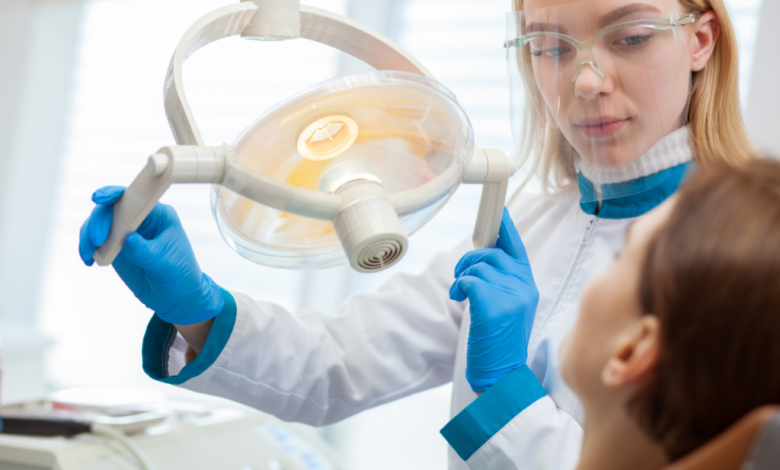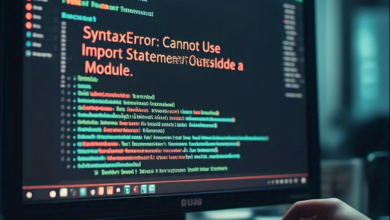Finding the Best Emergency Dentist in Calgary: Your Guide to Quick Dental Care

Understanding Dental Emergencies in Calgary
Common Causes of Dental Emergencies
Dental emergencies can happen anytime, and they’re often unexpected. Some common causes include accidents like falls or sports injuries, which can lead to broken or knocked-out teeth. Another frequent cause is severe tooth decay that suddenly becomes painful. In Calgary, where outdoor activities are popular, sports-related dental injuries are not uncommon. It’s crucial to use protective gear like mouthguards during these activities to minimize risk.
Recognizing the Signs of a Dental Emergency
Knowing when a situation is a dental emergency can save your teeth. Signs include severe pain, bleeding, or swelling that doesn’t go away. If you have a tooth that’s been knocked out or a filling that has fallen out, these are also emergencies. Emergency Dental Calgary services are there to help you quickly address these issues.
When to Seek Immediate Dental Care
Immediate care is necessary when you experience intense pain, swelling, or bleeding that can’t be controlled. If you have a toothache that keeps you awake or a broken tooth causing sharp pain, it’s time to see a dentist. Many clinics offer wisdom teeth removal Calgary and Calgary root canal services for urgent cases. Quick action can prevent further damage and complications.
In Calgary, having a reliable dentist to call during emergencies is essential. Whether it’s a sudden toothache or an unexpected injury, knowing that help is available can provide peace of mind. Always keep your dentist’s contact information handy for such situations.
Choosing the Right Emergency Dentist in Calgary
Evaluating Dentist Credentials and Experience
When you’re in pain and need help fast, you want to make sure the person you’re trusting knows their stuff. Check that your chosen Dentist in Calgary is licensed and has solid experience with emergencies. Reading online reviews can give you a glimpse into how they’ve handled past urgent cases, like a Calgary root canal. A dentist with a history of successful emergency treatments can offer peace of mind when it matters most.
Importance of Location and Accessibility
In an emergency, every minute counts. Look for an emergency dentist in Calgary who’s close to home or work. This way, you can get there quickly and without stress. Consider how easy it is to access the clinic—parking and public transport options can make a big difference when you’re in a rush.
Checking Clinic Hours and Availability
Dental emergencies don’t care about your schedule. They can happen anytime, so finding a clinic with flexible hours is crucial. Many of the best dentist in Calgary options offer evening and weekend hours, and some are even open 24/7. Make sure their availability matches your needs, so you’re not left hanging when you need help the most.
Choosing the right emergency dentist is about more than just immediate care—it’s about ensuring you’re covered whenever unexpected dental issues arise.
What to Expect During an Emergency Dental Visit
Initial Assessment and Diagnosis
When you step into an Emergency Dental Calgary clinic, the team jumps into action to address your pain right away. They know time is of the essence. First up, they’ll ask about your symptoms, any recent dental work, and your general health. This helps them get a clear picture of what’s happening. Expect a thorough examination, which might include X-rays, to really nail down the issue.
Available Treatment Options
Once they’ve figured out what’s going on, the dentist will talk you through your treatment options. Here’s what they might suggest:
- Pain Management: They might give you medication or perform a quick procedure to ease the pain.
- Temporary Fixes: If you’ve got a broken crown or lost filling, they might do a temporary fix to protect the tooth until you can get a permanent solution.
- Extractions or Repairs: In severe cases, they might need to pull a tooth or do repairs right there if they can.
Post-Treatment Care and Follow-Up
After your emergency treatment, you’ll get some instructions on what to do next. This could include tips on managing pain, what you should or shouldn’t eat, and how to take care of any temporary fixes. They’ll also set up a follow-up appointment to make sure everything’s healing up nicely and to plan any further treatment if needed.
Following the dentist’s advice closely is key to avoiding any bumps in the road to recovery. If you’ve got questions or something’s not right after your visit, don’t hesitate to reach out to the clinic.
Preventive Measures to Avoid Dental Emergencies
Using Mouthguards During Sports
Ever thought about how a simple mouthguard can save your teeth? If you’re into sports, especially the contact kind, a mouthguard is your best friend. It’s like a cushion for your teeth, absorbing shocks and preventing those nasty chips or even tooth loss. Custom-fitted ones are the way to go—they’re more comfortable and provide better protection. Whether you’re playing football, hockey, or even skateboarding, don’t skip this small but mighty piece of gear.
Avoiding Hard Foods and Objects
We all love a good crunch, but biting down on hard foods like candy or ice is a gamble. Cracking a tooth is not fun. And let’s not forget those times when you use your teeth as tools to open things—big no-no! Instead, reach for the scissors or a bottle opener. Being mindful about what you chew on can save you a lot of pain and an unexpected trip to the dentist.
Regular Dental Check-Ups
Here’s the deal: regular dental check-ups are like a health report card for your mouth. Aim for a visit every six months. These appointments are not just about cleaning; they’re about spotting issues before they blow up into emergencies. A dentist can catch cavities or gum problems early, saving you from bigger headaches down the road. Plus, nothing beats that squeaky-clean feeling after a professional cleaning.
Dental emergencies are often preventable with a little care and attention. By incorporating these habits into your routine, you’re not just protecting your teeth but also saving yourself from future stress and discomfort. It’s all about making small changes now for a healthier smile later.
How to Handle Common Dental Emergencies
Dealing with a Knocked-Out Tooth
Losing a tooth can be alarming, but quick action can make a huge difference. If you find yourself in this situation, first, try to remain calm. Pick up the tooth by the crown, not the root, to avoid damaging it further. Gently rinse it with water if it’s dirty, but don’t scrub it or remove any attached tissue fragments. If possible, place the tooth back into its socket and hold it there gently. If reinsertion isn’t feasible, keep the tooth moist by placing it in a container of milk or a saline solution. Then, get to a dentist as soon as possible; the sooner you act, the better the chances of saving the tooth.
Managing Severe Toothaches
Toothaches can range from mildly annoying to downright debilitating. When a severe toothache strikes, start by rinsing your mouth with warm water to clean it out. Floss gently to remove any debris that might be causing irritation. Avoid placing aspirin directly on the aching tooth or gums, as this can burn the tissue. Instead, use a cold compress on the outside of your cheek to help reduce swelling and numb the pain. If the pain persists, it’s time to see a dentist. They’ll determine the cause—whether it’s decay, an abscess, or something else—and provide the necessary treatment.
Handling Broken or Chipped Teeth
Accidents happen, and sometimes they result in chipped or broken teeth. If you break a tooth, rinse your mouth with warm water to clean the area. Apply a piece of gauze to any bleeding spots for about ten minutes or until the bleeding stops. To alleviate any swelling, apply a cold compress outside the mouth or on the cheek near the affected area. Gather any broken tooth fragments and store them in a clean container. Bring these fragments with you when you visit the dentist. Prompt dental attention can often repair the damage and restore your tooth’s appearance and function.
Dental emergencies can be stressful, but knowing how to respond can make a significant difference in the outcome. Acting quickly and seeking professional care are key steps in managing these situations effectively.
The Role of Technology in Emergency Dental Care
Advanced Diagnostic Tools
When you’re facing a dental emergency, getting the right diagnosis fast is crucial. Thanks to modern tech, dentists now use advanced diagnostic tools to pinpoint issues quickly. Digital X-rays, for example, provide detailed images with less radiation exposure than traditional methods. They’re quicker too, which means less waiting around in pain. Another handy tool is the intraoral camera. This little device lets dentists see clear images of the inside of your mouth, which helps in identifying problems that might not be visible to the naked eye.
Modern Treatment Techniques
Gone are the days when dental treatments were slow and painful. Today, dentists use cutting-edge techniques to make procedures faster and more comfortable. Laser dentistry is a game-changer. It can treat a variety of issues, from gum disease to tooth decay, with less pain and quicker recovery times. Another modern approach is 3D printing, which is used to create custom dental crowns or implants right in the office. This means you can get your dental restoration done in a single visit, rather than waiting weeks.
Tele-Dentistry for Emergencies
In a world where everything is going digital, why should dental care be left behind? Tele-dentistry allows you to consult with your dentist through video calls. This is especially useful if you’re unsure whether your issue is an emergency or if you need immediate care. It saves time and can help you decide the next steps without leaving home. Plus, for those living in remote areas, tele-dentistry bridges the gap, providing access to professional advice without the need for travel.
In an emergency, every second counts. Leveraging technology not only speeds up diagnosis and treatment but also enhances comfort and accessibility, ensuring you get the care you need when you need it most.
Insurance and Payment Options for Emergency Dental Care
When you find yourself in a dental emergency, the last thing you want to worry about is how to pay for it. Understanding your insurance and payment options can ease some of that stress.
Understanding Your Dental Insurance
First things first, make sure you know what your dental insurance covers. Not all plans are the same, and some might not cover emergency treatments. It’s essential to check if your plan includes coverage for emergency dental services. This can save you from unexpected costs when you’re already dealing with the stress of a dental emergency. Also, confirm if the clinic you plan to visit accepts your insurance.
Flexible Payment Plans
Not everyone has dental insurance, and even if you do, it might not cover everything. That’s where flexible payment plans come in. Many dental clinics in Calgary offer these plans, allowing you to spread out the cost over time. This can be particularly helpful if you’re facing an expensive procedure, like wisdom teeth removal Calgary. These plans can make it easier to manage the financial burden without delaying necessary care.
Direct Billing to Insurance Companies
Direct billing is another option that can simplify the payment process. With direct billing, the dental clinic charges your insurance company directly, so you only pay the portion not covered by your plan. This means less paperwork for you and a more straightforward payment process. Check with your chosen clinic to see if they offer this service, as it can significantly reduce the hassle of dealing with insurance claims.
In a dental emergency, knowing your payment options can be as important as the care you receive. By understanding your insurance coverage and available payment plans, you can focus on getting the treatment you need without financial stress.
Conclusion
Finding the right emergency dentist in Calgary isn’t just about getting immediate relief—it’s about peace of mind. When you’re in pain or dealing with a dental crisis, knowing you’ve got a reliable professional to turn to can make all the difference. Remember to check out their credentials, location, and availability before an emergency strikes. It’s always better to be prepared. So, take a little time now to find a dentist who fits your needs, and you’ll thank yourself later when you’re not scrambling during a dental emergency. Stay informed, stay prepared, and keep smiling!





